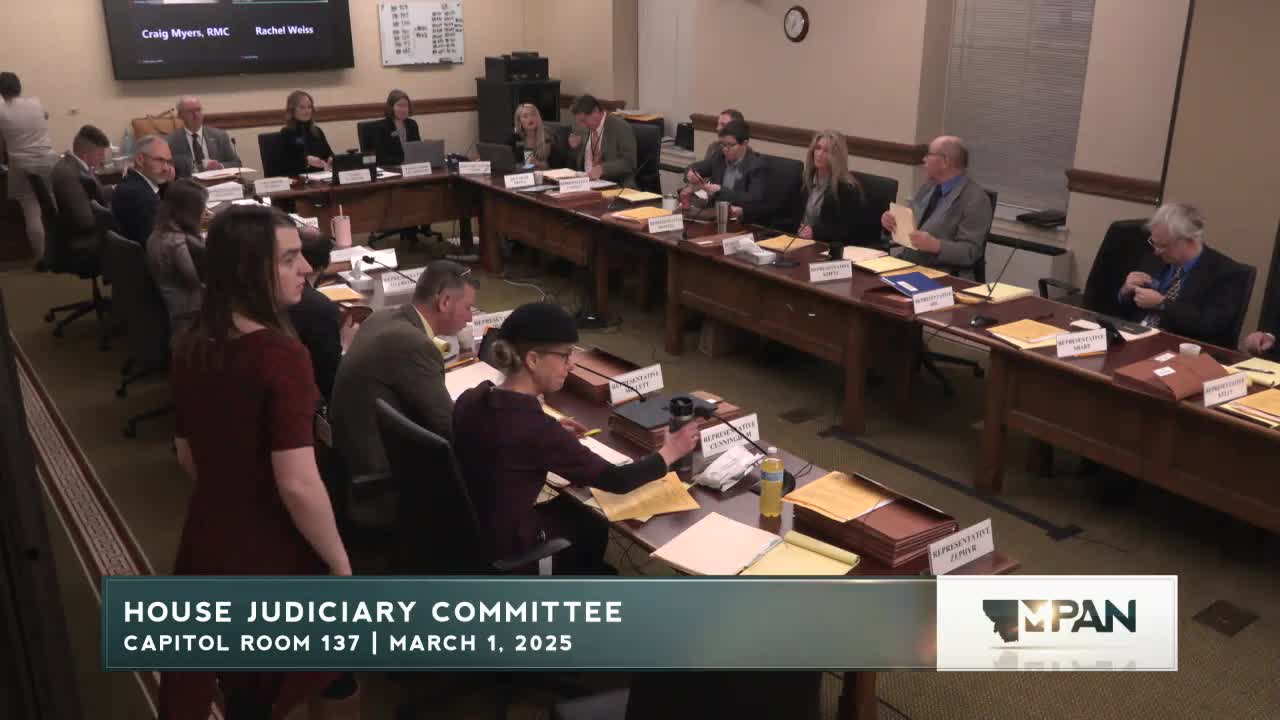House hearing spotlights bipartisan push to require asbestos transparency, limit over-naming in lawsuits
Get AI-powered insights, summaries, and transcripts
Subscribe
Summary
Representative Greg Overstreet told the House Judiciary Committee his House Bill 803 would require plaintiffs to disclose asbestos trust filings early in civil cases and would demand minimal factual ties before defendants are named, aiming to speed recoveries and curb indiscriminate over-naming.
Representative Greg Overstreet, sponsor of House Bill 803, told the House Judiciary Committee the bill aims to make asbestos litigation more transparent and to prevent companies from being named without proof of exposure. "This morning I bring to you House Bill 803, a bill that brings forward important reforms to ensuring legitimate asbestos claims are handled efficiently and expeditiously through our courts and that plaintiffs are justly and timely compensated," Overstreet said.
The bill has two principal components. The first would require plaintiffs to disclose and accelerate filing claims they have submitted to asbestos bankruptcy trusts so juries see the full exposure history. "By removing the disconnect that presently exists between the asbestos trust and civil justice system, juries will be able to hear all of a plaintiff's exposures to asbestos," Overstreet said. The second section would require brief factual disclosures tying each defendant to the plaintiff's exposure, which sponsors said will reduce over-naming and limit wasteful defense costs.
Proponents at the hearing included Charles Robinson, testifying for the Montana Chamber of Commerce, who described concerns that duplicate or manipulated trust filings can deplete compensation resources: "We urge you a yes for HB 803 because it protects asbestos trust funds against double dipping and streamlines asbestos lawsuits by requiring basic due diligence before filing legal complaints." Mark Behrens, with the U.S. Chamber Institute for Legal Reform, and Lee Nickis of the American Tort Reform Association also supported the measure and handed committee members examples of bankruptcy trust claim forms to show how easily claims can be filed.
Opponents included attorneys representing long-running Libby-area claims. Roger Sullivan told the committee there is only one remaining defendant in Montana asbestos litigation there and argued that transparency requirements already exist under Montana's civil rules. He warned the bill could further delay compensation for Libby victims and allow a remaining defendant to take a setoff based on trust claims that have not yet been resolved. Another opponent, Al Smith, told the committee the bill would benefit large out-of-state corporations and urged members to stand with Montana residents instead.
Members pressed witnesses on practical effects. Representative Staffman asked whether the bill would make it easier or harder for Libby victims to obtain compensation; Sullivan replied it would further delay their recoveries. Overstreet and proponents responded that the bill would not change trust processing under federal bankruptcy law and that the required disclosures are low-bar, intended only to show a basis for naming a defendant.
The hearing record shows substantial agreement that duplicative filings and indiscriminate defendant naming are real issues nationally, while opponents emphasized local litigation history, constitutional concerns, and potential harms for long-running local claims such as Libby. The committee closed the hearing without an immediate vote recorded in the transcript.
Ending: The committee heard the testimony and closed the hearing on HB 803; no committee vote on the bill is recorded in the transcript.
